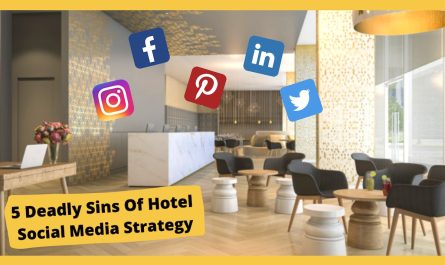After my Bachelor’s degree I started my professional career on the agency side, where I would stay for the coming years. I immediately liked the casual atmosphere, the relaxed interaction with each other and the flat hierarchies. But the one of the things I liked the most, however, was the very casual dress code. Suits and ties were no longer a must and I couldn’t help me but smile at people, which you could see from a long distance that they don’t feel comfortable at all. A decent pair of jeans, a few neat sneakers and a T-shirt, which you also like to wear at a barbecue party, were enough. I loved it and swore to myself that I would never wear a suit and tie for the rest of my professional career. Let’s see for how long I can keep this promise 😉
Suits and Ties are for older Generations – and Posers
But why should suits and ties still be the measure of all things? I do agree that even when having a casual dress code, you have to look somehow «groomed» – not going deeper on the topic of body hygiene here. But I was able to learn so much more about my colleagues and connect with them through a leisurely dress code. Very good and fruitful conversations evolved during lunch or when having a beer together after work. Based on their clothings we were having conversations about individual or common interests, stories about recent destinations we haven been to, or even stories about heirlooms and jewellery from their great-grandparents. Would these conversations also have been possible if everyone had posed around in suits and ties? I clearly doubt it. The only thing I would probably have learned about my colleagues is how much they earn and the first name of their tailor. In other words with suit and tie…

To sum it up, I strongly believe that by having a casual dress code policy within an organization, where everybody can walk around they feel the most comfortable, the following will happen:
- A leisurely dress code at the workplace allows for deeper relationship to emerge with colleagues and connect with them on a personal basis.
- By having deep and personal relationships with colleagues, team awareness and internal communication will increase.
- Increased team awareness and having a better internal communication flow will result in an increase in work efficiency and productivity.
Do not force a Company Dress Code – NEVER!
Before I get into this topic, I would like to make it clear again for all managers and team leaders who are working with people from the millennial generation: If you or somebody else wants to wear a suit and tie out of free will, just do it. There are also certain professions where a business dress code is still a must. I get it. But if you are the manager or team leader of a company, where it really doesn’t matter whether your employees wear a suit and tie or their favorite pair of jeans, please don’t force them dressing up in a certain way – never!
After a few months in one of my first jobs, there was a change on the management floor. A succession plan was initiated and everyone was somewhat insecure about the future challenges, but still euphoric and optimistic about the new opportunities. We saw the new CEO for the first time during the welcoming speech, where he was talking about how excited he is to be here and he cannot wait to start working with such creative people. He was elegantly dressed in suit and tie and he made a good impression on me, even though it was clear to me that I had a lot more fun in my jeans and my Converse sneakers. But hey, we want everyone to dress up the way they like and feel comfortable. Topic chopped off, right?
Nope. After a few days then the disillusionment came: A round mail was sent that we have to maintain a new internal business dress code starting the next week. The mood was suddenly at a low point and the annoyance of the colleagues increased. When repeated communication attempts with the CEO were stopped, an additional feeling of helplessness was established among us and my colleagues. Some decided to follow the instructions, others decided to quit their job. The newly hired people were of course told from the start how to dress and the open space office turned from a creative and colourful heap into a grey desert. It sucked!
Conclusion
Even though it was all a very crazy and sad experience, I wouldn’t want to miss a second of it. It became clear to me that things as “simple” as the dress code can actually influence the culture of an entire organization – both positively and negatively. Yes, one should come along well-groomed at work and no, white socks with sandals will never be hip. But in the end my dear managers and team leaders, it’s all about that the employees feel comfortable in their own skin and can therefore work in the most productive and efficient way. Because it is still only the employees who contribute to the success of a company or a team- whether it is a the senior or the intern. And when I will become a team leader or manager one day, I know exactly: I surely prefer a colorful, motivated and creative bunch of people under me who work together with me towards the same goal than a bunch of suits and ties that all look the same and are annoyed from my dress code policy.



